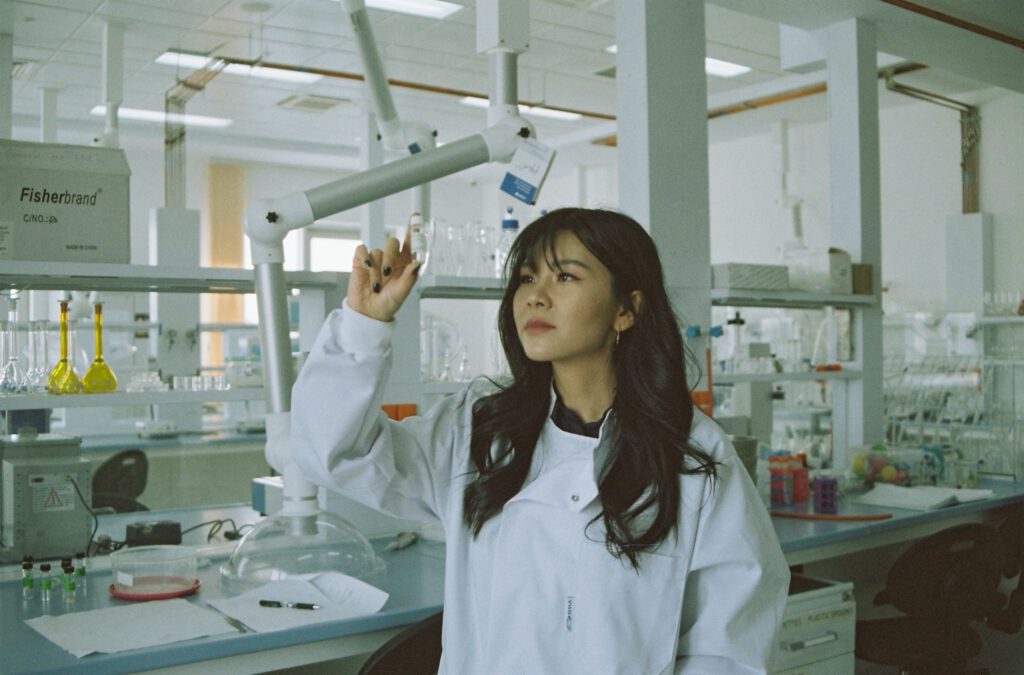Educating the researcher of the future: What can we learn from large transdisciplinary research projects?

In recent years, various complex, societal 21st-century challenges emerged, that ask for sustainable solutions. Consider, for example, the current COVID-19 pandemic, the climate crisis, or social injustice. To solve such problems, we need transdisciplinary research. In transdisciplinary research, scientists from different disciplines work together with stakeholders from public and private sectors and citizens to come up with effective solutions. Such an approach requires (1) understanding and exploring the complexity of societal problems, (2) taking multiple perspectives into account, (3) connecting different types of knowledge (theoretical and practical), and (4) understanding how the societal problem can be addressed (Guimarães et al., 2019).
Ove the past few years, I have participated in the NeurolabNL Startimpulse project (see Vanderbroucke et al., 2021). One of the main goals of this project was to integrate knowledge from developmental cognitive neuroscience into society in a transdisciplinary manner. To this end, I worked together with a large Dutch group of researchers (doing both basic and applied research) and societal stakeholders to understand how we can reduce antisocial behavior in youth. Last week, the results of the NeurolabNL Startimpulse project have been published in an interactive e-magazine. For me as a young researcher, the NeurolabNL program was an experience that greatly influenced how I think about doing research and creating societal impact in a transdisciplinary way. In this blog, I will share the lessons I have learned in the process.
Involve young researchers from the start
First, it is important to involve young researchers from the start of transdisciplinary research projects. After all, they will become the researchers and leaders of the future. Hence, the sooner they start learning how to conduct transdisciplinary research, the easier it is to start and keep using this in practice – making it more advantageous, effective and sustainable in the long term. However, there are also several more immediate gains from involving young researchers from the beginning, both for themselves and the consortium they participate in. For instance, they often have unique, creative perspectives and input, which may foster innovation in understanding the complex problems and coming up with effective and sustainable solutions. Moreover, young researchers can transfer obtained knowledge, skills and tools to their own research projects and future jobs.
Help them learn a diverse range of knowledge, skills and tools
To become a transdisciplinary researcher of the future, young people need to adopt a different set of attitudes, knowledge and skills than discipline-based researchers (Guimarães et al., 2019). In my view, transdisciplinary research projects offer great opportunities to cultivate such competencies. During the NeurolabNL Startimpulse project, I’ve learned several new skills that I would not have obtained otherwise. For instance, the Program has been useful to establish connections with other researchers and societal partners who also want to understand how we can reduce antisocial behavior in youth. However, it did not only help to expand my network of like-minded people, I also learned to communicate effectively with people from different disciplines and societal stakeholders, how to create common goals and expectations, and how to work in a large team.
To tackle complex societal problems, it is also important to learn to identify which questions are important to ask – and resonate with both stakeholders and the target group you are researching (in this case, youth; Vanderbroucke et al., 2021). Programs such as the NeurolabNL Startimpulse project are well suited to learn this skill from youth, various stakeholders, but also from senior researchers at the same time. Moreover, in sessions that specifically focused on one of the complex problems (e.g. reduce antisocial behavior in youth), I also learned how knowledge from different perspectives can be integrated to come up with effective solutions. To me, perhaps the most important skill that was fostered through participation in the NeurolabNL Startimpulse project is reflection – which is essential for learning and knowledge integration, and benefits individual researchers, as well as the broader consortium.
Make transdisciplinary research more sustainable
While educating young scientists to become transdisciplinary researchers has clear advantages, there are also some challenges that need to be tackled to make transdisciplinary research effective and sustainable. For instance, transdisciplinary research is time-consuming, and associated with some career risk (Guimarães et al., 2019; Vanderbroucke et al., 2021). Given that many young researchers in the field of brain, cognition and behavior already report a high level of workload and stress, mentors and supervisors may play an important role in providing support and opportunities for young researchers to engage in transdisciplinary research (Guimarães et al., 2019). Luckily, universities are also making more structural efforts to promote transdisciplinary research (see e.g. the Convergence, a cooperation between TU Delft, Erasmus University Rotterdam and Erasmus MC), and use the inspiration from young scientists (see e.g. Healthy Start program).
Another sustainable solution, that was also used in the NeurolabNL Startimpulse project, is using ‘knowlegde-brokers’, who can dedicate their time to communication and integration of various knowledge types (Vanderbroucke et al., 2021). I’m grateful that I have been given the opportunity to take on such a role, and focus on effective communication within the transdisciplinary Healthy Start program, next to my PhD Project. And I’m excited that I can contribute to improving the future for a new generation of youth, and of young scientists.
Join the Healthy Start Community
Are you also interested in helping create inclusive opportunities for a diversity of youth to become participating and contributing citizens? Join the healthy start community.
Contact
Erasmus University Rotterdam
Mandeville Building T13
Burgemeester Oudlaan 50
3062 PA Rotterdam, the Netherlands

